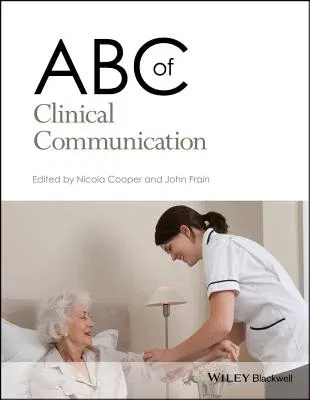Clinical communication underpins safe patient care. The effective health
professional sees illness through the patient's eyes and understands
what matters most to him or her. Effectiveness means gathering hard
clinical data about the physical changes affecting the patient,
understanding why the patient is concerned, conveying this to other
health care professionals and involving the patient at every stage of
management decisions.
The evidence for good clinical communication is well established,
although there are challenges. While listening is the basis of sound
diagnosis and clinical reasoning, its absence affects patient outcomes
particularly when patients are not permitted to make their concerns
known or when there are gaps in information flow or communication
between the professionals caring for them.
The ABC of Clinical Communication considers the evidence pertinent to
individual encounters between patients and their health professionals,
how to achieve efficient flow of information, the function of clinical
teams and developing a teaching programme. Topics covered include:
- The consultation
- Clinical communication and personality type
- Shared decision making
- Communication in clinical teams
- Communication in medical records
- Communication in specific situations, including mental health and end
of life
- Teaching clinical communication
The chapter authors are clinicians involved in communicating with
patients, research and training healthcare professionals of the future.
This team reflects the multidisciplinary approach required to develop
effective clinical communication.

